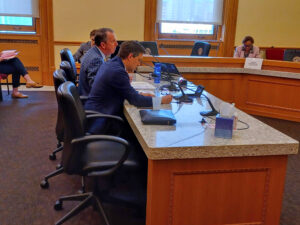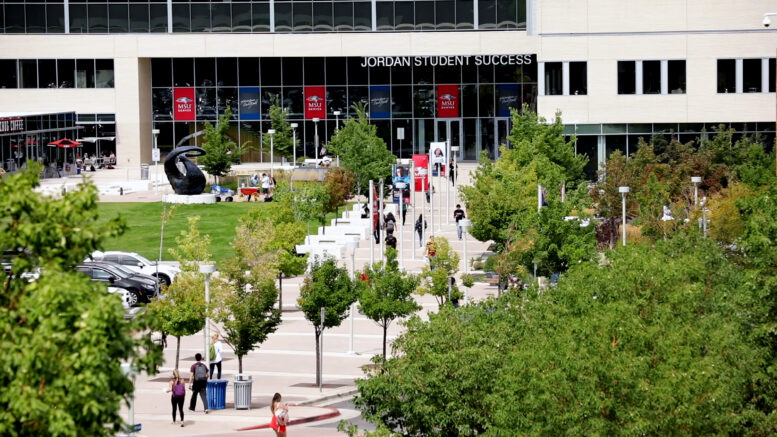With employers across Colorado facing continued shortages of talented workers, Gov. Jared Polis on Tuesday signed into law a pair of bills that industry leaders believe could help to ramp up the school-to-career pipeline.
At a late-morning ceremony at Colorado Mountain College in Salida, Polis inked House Bill 1246, which sets aside $45 million for students seeking degrees and credentials in labor-challenged fields such as health care, construction, law enforcement and education. Then at an afternoon ceremony at Adams State University in Alamosa, the Democrat governor signed Senate Bill 205, which spends $21 million to offer $1,500 scholarships for continuing education to some 14,000 students graduating from high school in the next school year.
Business and workforce-development leaders have described the two bipartisan workforce-development bills as arguably the most purely pro-business bills of the recently adjourned legislative session, in which chambers of commerce and other organizations spent a lot of time on the defensive. They target industries where businesses have often been unable to meet customer or public demand because of a lack of personnel and look to boost the career-focused educational levels of students in a state where just 50% of high-school graduates pursue advanced degrees or certifications.
“Zero-cost credentials and flexible scholarships for graduating seniors will save people money, and we are stepping up to fill in-demand jobs and connect hard-working Coloradans to advanced training and education,” Polis said in a news release.
Free credentialing

Colorado House Speaker Julie McCluskie rolls out the free-credentialing bill that she co-sponsored at a March news conference.
HB 1246, sponsored by Democratic House Speaker Julie McCluskie and Republican Rep. Rose Pugliese of Colorado Springs, is a follow-up to the Care Forward program created in 2022 that offered free tuition and fees for more than 2,000 students who have gotten or are in the process of acquiring their health-care credentials. In addition to funding $38.6 million in tuition and fees in targeted fields, it sets aside $5 million for two community colleges to offer new nursing-degree programs and $1.4 million for construction apprenticeship programs to expand.
Joel Pennick, vice president of JE Dunn Construction of Englewood and an advisory board member to Colorado Succeeds, said that the Denver area is short 40,000 to 50,000 construction workers and that this bill is student-driven and aligned with industry. Carol Salter, nursing shortage program manager for the Northern Colorado Health Sector Partnership, also told the House Education Committee during a hearing in March that there are 1,000 open registered nurse positions in Larimer and Weld Counties alone that need help like HB 1246 in getting filled.
“With the law Gov. Polis just signed, aspiring teachers, childcare workers, nurses, firefighters, law-enforcement officers and construction workers will soon have a completely free pathway to the career of their dreams,” McCluskie said in a statement after the ceremony. “This law will boost our economy, address Colorado’s workforce shortages and help fill critical jobs ‑ especially in rural communities.”
Workforce development via scholarships

Colorado state Sens. Paul Lundeen and Jeff Bridges testify for Senate Bill 205 at an April hearing.
SB 205, sponsored by Democratic Sen. Jeff Bridges of Greenwood Village and Republican Senate Minority Leader Paul Lundeen of Monument, is less focused but still gives priority to students seeking credentials in fields identified by the Colorado Office of Economic Development and International Trade. It also funds career-advising services in K-12 schools to help students take advantage of the scholarships and a marketing program to advertise the offerings.
During an April Senate Education Committee hearing, the proposal drew support from groups ranging from the Colorado Society of CPAs to the Colorado Contractors Association to the American Federation of Teachers. The $1,500 offering represents the average cost of technical training for industry certification in this state, and it’s meant to counter a 10% drop just since 2019 in the percentage of graduating high schoolers enrolling in post-secondary education.
“We must ensure that students across the state are educated to their greatest potential and all of Colorado’s jobs have access to a pool of talent,” Meghan Dollar, senior vice president of governmental affairs for the Colorado Chamber of Commerce, told the committee.
